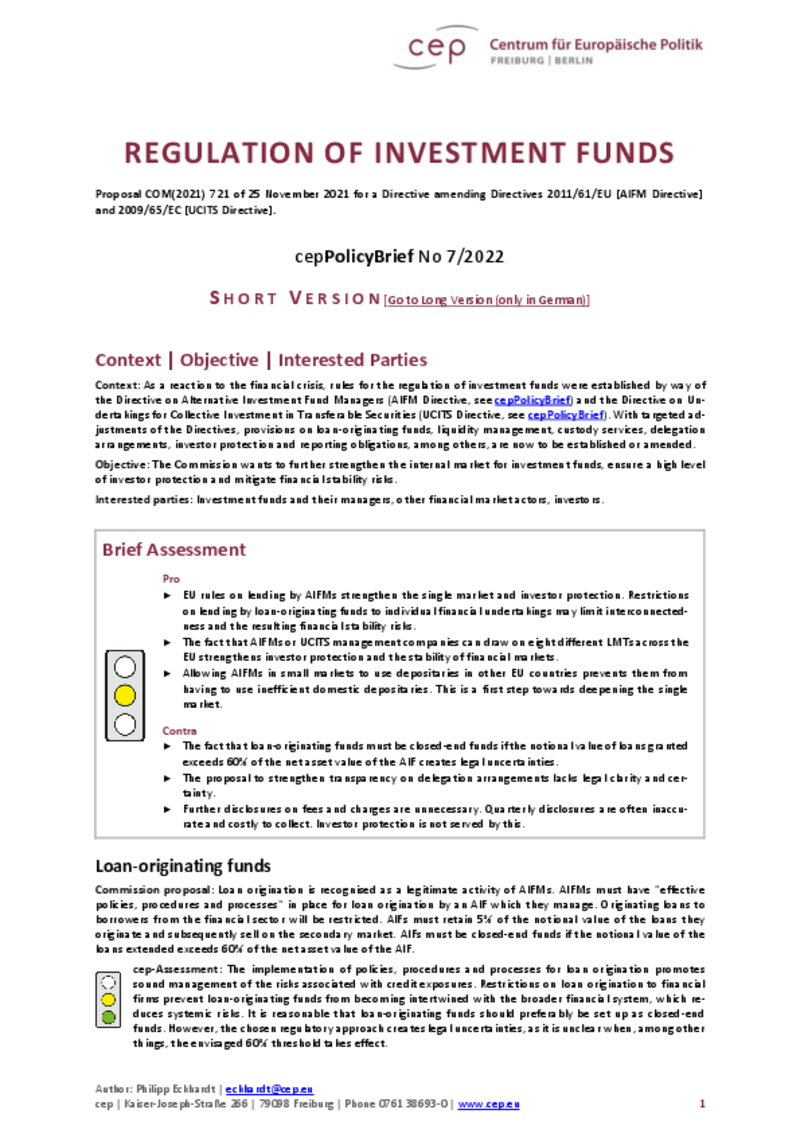
Financial Markets
Regulation of Investment Funds (cepPolicyBrief)
cepPolicyBrief
The adjustments will be made to two EU Directives adopted in response to the 2008/2009 financial crisis: First, the Directive on Alternative Investment Fund Managers (AIFM Directive) and, second, the Directive on UCITS investment funds (UCITS Directive) are being revised. Alternative investment funds (AIF) are funds that primarily acquire money from professional investors. These include, for example, private equity funds, hedge funds, and commodity and real estate funds. UCITS investment funds are funds whose purpose is to invest money raised from retail investors.
"With targeted adjustments to the AIFM and UCITS Directives, the EU Commission wants to strengthen the internal market for investment funds, improve investor protection and contain risks to financial market stability. With its proposals, it has partly succeeded in doing so," says cep financial market expert Philipp Eckhardt, who wrote the analysis.
For the first time, the Commission is planning EU-wide regulations for loan-originating funds. The new rules on lending by loan-originating funds promote sound management of the risks associated with credit exposures. In addition, Eckhardt welcomes the restrictions on lending to individual financial firms because "they can prevent loan-originating funds from becoming intertwined with the broader financial system." The fact that AIFMs or UCITS management companies can in principle draw on eight different LMTs throughout the EU also strengthens investor protection and the stability of financial markets.
However, Eckhardt also sees room for improvement: The proposed additional disclosure requirements on fees and charges are unnecessary, for instance. "The proposed quarterly disclosure is often inaccurate, and its collection is time-consuming and expensive. In any case, investor protection is not served by this."
Download PDF
| cepAnalyse (publ. 05.25.2022) | 186 KB | Download | |
 | |||



